-

Healthy Tips
APPLE-
Calories: 50
Apples are low in calories and contain no saturated fats or cholesterol; 100g of fresh apple slices provide 50 calories. Apples are rich in dietary fiber, which helps prevent absorption of dietary LDL cholesterol. The dietary fibers also help protect the mucous membrane of the colon from exposure to toxic substances.
Apples contain good quantities of vitamin-C, a powerful natural antioxidant, and beta-carotene. Apples also help to prevent cancer and heart disease, control sugar problems, provide anti-inflammatory protection and promote weight loss.
Source: http://www.nutrition-and-you.com/apple-fruit.html
healthfood-guide.com
-

Healthy Tips
AVOCADOS-
Calories: 192
Avocados, high in vitamin E, are sodium and cholesterol-free, and contain phytochemicals that may help fight heart disease and cancer. 100g fruit provides 6.7g of the recommended daily intake.
Avocados contain dietary fibers, which help lower blood cholesterol levels and prevent constipation. It may also help to raise levels of HDL (good cholesterol).
Source: USDA National Nutrient Database
www.nutrition-and-you.com/avocados.html
-
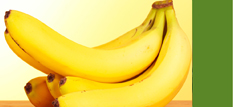
Healthy Tips
BANANAS-
Calories: 90
Bananas are low in fats and contain anti-oxidants, minerals, vitamins and dietary fiber (7% of DRA per 100 g. They are also a good source of vitamin C and vitamin-B6 (pyridoxine), an important B-complex vitamin that has a beneficial role in decreasing homocystine (one of the causative factors for coronary artery disease (CHD) and stroke episodes) levels in the body. Bananas are also a very good source of vitamin-B6 (pyridoxine). Pyridoxine is an important B-complex vitamin that has a beneficial role in the treatment of neuritis, anemia, and decreasing homocystine (one of the causative factor for coronary artery disease (CHD) and stroke episodes) levels in the body.
Source: www.nutrition-and-you.com/banana-fruit.html
-

Healthy Tips
BLUEBERRIES-
Calories: 57
Blueberries are high in antioxidants, low in calories-100g blueberries provide 57 calories. They contain health benefiting soluble dietary fiber, minerals, vitamins, and pigment anti-oxidants that contribute immensely for optimum health and wellness. Diets with blueberry extract improved short-term memory in aging rats. It also reversed some loss of balance and coordination.
Source: USDA Agricultural Research Service
www.nutrition-and-you.com/blueberries.html
-
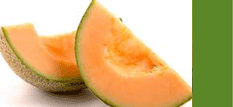
Healthy Tips
CANTALOUPE-
Calories: 34
Cantaloupe aids in digestion, and is an excellent source of vitamin A, a powerful antioxidant and is essential for maintaining healthy vision, mucus membranes and skin.
Cantaloupe is also rich in antioxidants that help protect cells and offer protection against colon, prostate, breast, endometrial, lung, and pancreatic cancers.
Source: www.naturalfoodbenefits.com
www.nutrition-and-you.com/cantaloupe.html
-
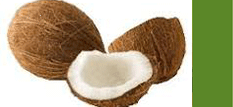
Healthy Tips
COCONUT-
Calories: 45
Coconuts are fat free, saturated free, cholesterol free, a good source of magnesium, manganese, fiber, potassium, and vitamin C. Coconut oil helps to control blood sugar, and improves the secretion of insulin. It helps in effective utilization of blood glucose, thereby preventing and treating diabetes.
Coconut oil is also believed to be useful in treating pancreatitis, and strengthens the immune system, helping to prevent kidney and gall bladder diseases, and dissolve kidney stones.
Source: www.naturalfoodbenefits.com
-

Healthy Tips
GENIPS/GINEPS-
Calories: 3.85
Genips are a good source of iron as well as fiber, calcium, Vitamin A, phosphorus, and niacin.
Source: www.naturalfoodbenefits.com
-

Healthy Tips
GRAPES-
Calories: 60
Grapes are saturated fat and cholesterol free, and very low in sodium. They increase the nitric oxide levels in the blood, which prevents blood clots, thereby reducing the chance of heart attacks. In addition, the antioxidant present in grapes prevents the oxidation of LDL cholesterol, which blocks the blood vessels.
Grapes are considered a laxative food, as they contain organic acid, sugar and cellulose. They also relieve chronic constipation by toning up the intestine and stomach.
Source: www.naturalfoodbenefits.com
-
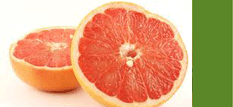
Healthy Tips
GRAPEFRUIT-
Calories: 60 Grapefruits are high in vitamins A and C, saturated fat free, and sodium and cholesterol free. The pectin reduces the accumulation of arterial deposits, and the vitamin C helps to strengthen and maintain the elasticity of arteries. The bioflavonoids prevent cancer cells from spreading in breast cancer patients, by ridding the body of excess estrogen. Diabetics can reduce the starches and sweets in the system by consuming grapefruit. A compound in grapefruit helps reduce the excessive production of cholesterol from the liver. The anti-cancer agents in grapefruit (especially in the rinds) protects against stomach and pancreatic cancer in the digestive system.
Source: www.naturalfoodbenefits.com
-

Healthy Tips
GUAVAS-
Calories: 68
Guavas contain no cholesterol and less digestible carbohydrates, and are one of the richest sources of dietary fiber. Its seeds, if ingested whole or chewed, serve as excellent laxatives, helping to clean your intestines and excretory system. Guava also helps to reduce cholesterol in the blood and prevents it from thickening, thereby maintaining fluidity and reducing blood pressure. Guava is very high in roughage and rich in vitamins, proteins and minerals.
Source: www.naturalfoodbenefits.comwww.nutrition-and-you.com/guava.html
-

Healthy Tips
MANGOES-
Calories: 70
Mangoes are rich in pre-biotic dietary fiber, vitamins, minerals, and poly-phenolic flavonoid antioxidant compounds -100 g of fresh mango fruit provides 765 mg of vitamin A. Mangoes also contain beta-carotene, alpha-carotene, and beta-cryptoxanthin, known to protect the body against leukemia, prostate lung and oral cavity cancers.
Several trial studies suggest that polyphenolic anti-oxidant compounds in mango offer protection against breast and colon cancers. In addition, mangos are rich in potassium, an important component of cell and body fluids that help control heart rate and blood pressure.
Source: www.nutrition-and-you.com/mango-fruit.html
-

Healthy Tips
ORANGE-
Calories: 80
Oranges are high in vitamin C, saturated fat free, sodium free, cholesterol free, a good source of dietary fiber. An orange packs over 170 different phytonutrients and more than 60 flavonoids; many of which have anti-inflammatory, anti-tumor and blood clot inhibiting properties and strong anti-oxidant effects which oxidize the LDLs in our blood.
The flavonoid called hesperidin in oranges can lower high blood pressure. Liminoid helps fight cancers of the mouth, skin, lung, breast, stomach and colon. The alkaloid synephrine found under the orange peel can reduce the liver's production of cholesterol. Vitamin C, an anti-oxidant, protects sperm from genetic damage that may cause birth defects.
Source: www.naturalfoodbenefits.com
-
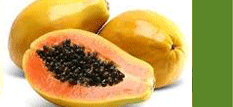
Healthy Tips
PAPAYA-
Calories: 60 Papayas are low in calories (39 cal/100 g), and are cholesterol free. They are a rich source of phyto-nutrients, minerals and vitamins; contain soft, easily digestible pulp/flesh soluble dietary fiber, that helps support normal bowel movements; reducing constipation. Papayas contain rich sources of antioxidant nutrients such as carotene and flavonoids; the B vitamins, folate and pantothenic acid; and the minerals, potassium and magnesium; and fiber. Together, these nutrients promote the health of the cardiovascular system and provide protection against colon cancer.
Source: www.naturalfoodbenefits.comwww.nutrition-and-you.com/papaya-fruit.html
-
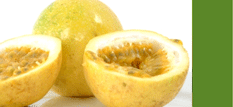
Healthy Tips
PASSION FRUIT-
Calories: 53 Passion Fruit are fat free, cholesterol free, very low sodium, low in calories; and are a good source of vitamin C and fiber. The juice, but mainly the leaves, of passion fruit contain the alkaloids, including harman, which has blood pressure lowering, sedative and antispasmodic action. Researchers at the University of Florida found that the carotenoids and polyphenols in yellow passion fruit extracts can kill cancer cells in vitro. Source: www.naturalfoodbenefits.com
-

Healthy Tips
PINEAPPLE-
Calories: 50 Pineapple is low in sodium and calories (provides 50 cal per 100 g), is fat free, saturated fat free and cholesterol free. Pineapples decrease the risk of hypertension, and contain vitamin C, which protects our bodies from free radicals that attack healthy cells. Pineapple is also rich in fiber, and effective in curing constipation and irregular bowel movement. Pineapple contains a proteolytic enzyme, bromelain that aids digestion, and has anti-inflammatory, anti-clotting and anti-cancer properties. Consumption of pineapple regularly is known to help fight arthritis, indigestion and worm infestation. Source: www.nutrition-and-you.com/pineapple.html
-

Healthy Tips
POMEGRANATES-
Pomegranates are a rich source of potassium and antioxidant polyphenols. Being rich in antioxidants, pomegranates can keep LDL (bad cholesterol) from oxidizing and prevent atherosclerosis.
Pomegranate juice has also been associated with reducing the risk of breast cancer. Pomegranates are good for reducing plaque in the arteries and raising levels of HDL (good cholesterol). Source: http://www.nutrition-and-you.com/pomegranate.html
-
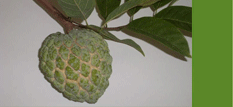
Healthy Tips
SUGAR APPLE-
Calories: 120 The B vitamin in sugar apples has been found to prevent homocystein build-up, which is associated with a higher risk of coronary heart disease and stroke. It is also rich in potassium, the mineral known to regulate blood pressure levels by controlling the effects of sodium in the body. Sugar apples are packed with niacin, a B vitamin effective in increasing good cholesterol in the body. They also maintain thyroid health, and contain copper, a trace mineral that is important for the production of the thyroid hormone called thyroxine.
Source: healthmad.com/nutrition/sugar-apple
-
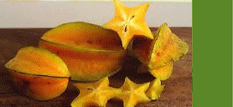
Healthy Tips
STAR APPLE-
Calories: 20 Star apples are rich in soluble fiber, which can be useful in reducing cholesterol levels and keeping bowels healthy. Star apple is an excellent source of ascorbic acid, assists in maintaining bones, teeth, mucus membranes, skin and improves the immune system. In addition, it contains vitamin B9 that is essential for preventing birth defects as well as reducing the risk of stroke and heart attacks. Star apple contains beta-carotene, which can be converted into retinol or vitamin A, which supports vision and appetite. Source: www.101healthyrecipes.com/star-fruit
-
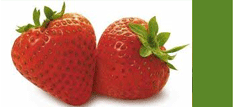
Healthy Tips
STRAWBERRIES-
Calories: 32 Strawberries are low in calories (32 kcal/100g) and fats but a rich source of many health promoting phyto-nutrients, minerals and vitamins that are essential for optimum health. Strawberries are high in potassium and magnesium, which are very effective in lowering high blood pressure caused by sodium. The high fiber, folate, no fat and anti oxidants such as vitamin-C and the phytochemicals (flavonoids) together reduce cholesterol and anti carcinogenic properties to fight cancer and tumors. Vitamin B strengthens the cardiac muscles and supports heart function. A daily intake of strawberries is seen to have remarkably reduced the growth of cancerous cells. Source: www.naturalfoodbenefits.com/www.nutrition-and-you.com/strawberries.html
-
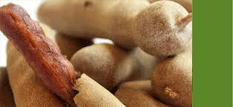
Healthy Tips
TAMARIND- Tamarind promotes a healthy heart, lowers cholesterol, helps the body digest food and is a good source of antioxidants that fight cancer. Tamarind juice is a mild laxative.
Tamarind is used as a diuretic remedy for bilious disorders, jaundice and runny nose. It is used as a gargle for sore throats, and as a drink to bring relief from sunstroke. The pulp, leaves and flowers, in various combinations, can relieve painful and swollen joints. Heated tamarind juice is used to cure conjunctivitis, and eye drops made from tamarind seeds may be a treatment for dry eye syndrome.
Source: www.naturalfoodbenefits.com
-

Healthy Tips
TANGERINE-
Calories: 52
Tangerines are high in antioxidant Vitamin C, which may help to prevent cancer and boosts the immune system. They also contain folate, beta-carotene, and Vitamins B1, 2, and 3. Tangerines are easier to digest than oranges for many people. Citrus fruits are an excellent protective food choice in winter, when risk of infection is high. Citrus contains nutrients that can promote healthy skin and protect the brain against age-related mental decline.
Source: USDA National Nutrient Database
http://www.nutrition-and-you.com/tangerines.html
-

Healthy Tips
WATERMELONS-
Calories: 23
Watermelon are very low in calories (30 cal per 100 g), contains vitamins A, C, B6, and potassium. It is fat-free, and contains more lycopene than other fruits or vegetables, which may reduce the risk of cancer and heart disease.
Watermelon is an excellent source of vitamin A, a powerful natural anti-oxidant known to protect from lung and oral cavity cancers, essential for vision and immunity and required for maintaining healthy mucus membranes and skin. The anti-oxidant flavonoids like lycopene, beta-carotene, lutein, zeaxanthin and cryptoxanthin are found to protect against colon, prostate, breast, endometrial, lung, and pancreatic cancers.
Source: USDA National Nutrient Database
www.nutrition-and-you.com/watermelon.html
-
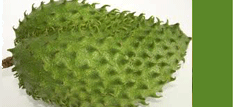
Healthy Tips
SOUR SOP-
Calories: 150
Sour sop are low in fat, saturated fat free, cholesterol free, sodium free, an excellent source of fiber, vitamin C, and a good source of vitamins B1 and B3, potassium, magnesium, and copper. The seeds, which have emetic properties, can be used to treat vomiting.. The crushed fresh leaves can be applied on skin eruptions to promote healing, and is effective for treating head lice and bedbugs. Sour sop juice can be taken orally as a remedy for urethritis, haematuria and liver ailments. Sour sop flowers are believed to alleviate runny nose.
Source: http://www.naturalfoodbenefits.com
-
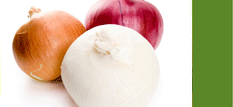
Healthy Tips
ONION-
Calories: 45 Calories from Fat 0, Total Fat 0g, Sodium 0mg, Cholesterol 0mg, Total Carbohydrate 11g, Dietary Fiber 1g, Sugars 5g, Protein 1g
Onions aid in thinning of the blood, preventing the red blood cells from forming clumps which could lead to heart disorders or cardiovascular diseases. Onions are rich in active compounds that inhibit the development of cancerous cells. One tablespoon of onion juice along with a spoonful of ginger juice, taken twice a day can boost the libido and sex drive, increasing the urge for a healthy sex life.
Source: http://www.naturalfoodbenefits.com
www.fruitsandveggiesmatter.gov/
-

Healthy Tips
GARLIC-
Calories: 102 Calories from Fat 0, Total Fat 0g, Saturated Fat 0g, Sodium 0mg, Cholesterol 0mg, Total Carbohydrate 1g, Dietary Fiber 0g, Sugars 0g, Protein 0g Garlic is known to lower cholesterol, prevent blood clots, reduce blood pressure and prevent cholesterol from sticking to artery walls. The oil extracted from garlic may aid diabetic patients in preventing damage to kidneys, nervous system functions, heart and eyesight. Regular intake of garlic reduces the risk of colon, stomach and esophageal cancer. It aids in reducing the production of carcinogenic compounds and the occurrence of tumor and breast cancer.
Source: http://www.naturalfoodbenefits.com
http://www.fruitsandveggiesmatter.gov/
-

Healthy Tips
CARROTS-
Calories: 25 Calories from Fat 0g, Total Fat 0g, Saturated Fat 0g, Cholesterol 0mg, Sodium 45mg, Total Carbohydrate 6g, Dietary Fiber 2g, Sugars 3g, Protein 1g, Vitamin A- 270% The bright orange color of carrots tells you they're an excellent source of vitamin A. Vitamin A, is important for good eyesight, fighting infection, reproduction (sperm production), maintenance of epithelial integrity, growth and development and keeps your skin and hair healthy. Beta carotene, the major carotene, is one of the powerful natural anti-oxidant which helps protect the body from harmful free radical injury.
Source: http://www.fruitsandveggiesmatter.gov/
-
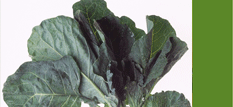
Healthy Tips
COLLARD-
Calories: 30 Wonderfully nutritious collard leaves are low in calories (provide only 30 cal per 100 g), and are cholesterol free. They contain soluble and insoluble dietary fiber that helps control LDL cholesterol levels; and offers protection against hemorrhoids, constipation as well as colon cancer. Collards are an antioxidant vegetable, which detoxifies cells and lowers risk of breast, ovarian, prostate, colon and lung cancers.
This leafy vegetable contains amazingly high levels of vitamin–K, potentially increasing bone mass by promoting osteotrophic activity in the bone. It also has a beneficial effect in Alzheimer's disease patients by limiting neuronal damage in their brain.
Source: www.nutrition-and-you.com/collard-greens.html
-

Healthy Tips
TOMATO-
Calories: 20 Calories from Fat 5, Total Fat 0g, Saturated Fat 0g, Cholesterol 0mg, Sodium 10mg, Total Carbohydrate 4g, Dietary Fiber 1g, Sugars 3g, Protein 1g Tomatoes contain lycopene, the red pigment in tomato. This pigment is a powerful antioxidant that can fight cancer cells. Tomato is a good blood purifier; the vitamin K in tomatoes helps to prevent hemorrhages. Tomatoes are a natural antiseptic and can help protect against infection. Nicotinic acid in tomatoes can help to reduce blood cholesterol, thus helping to prevent heart disease. Tomatoes help congestion of the liver. It protects the liver from cirrhosis as well as helps to dissolve gallstones.
Source: http://www.naturalfoodbenefits.comfruitsaveggiesmatter.gov/
-
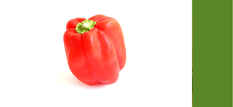
Healthy Tips
RED PEPPER-
Calories: 41 Total Fat 1.4g, Saturated Fat 0.3g, Carbohydrates 7g, Protein 1g, Cholesterol 0mg, Fiber 2g, Sodium 78mg, Carbohydrates 63%, Protein 10%, Fat 27%. Fresh bell peppers, red or green, are rich sources of vitamin C. Unlike other chili peppers, it is very low in calories and fats-100g, and provides just 31 calories. Red peppers contain antioxidant flavonoids such as A and B. Bell pepper contains plant nutrients that are known to have disease preventing and health promoting properties. It also reduces triglycerides and LDL cholesterol levels in obese individuals.
Source: www.nutrition-and-you.com/bell-pepper.html
www.fruitsandveggiesmatter.gov/
-
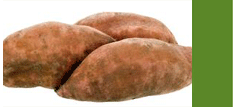
Healthy Tips
SWEET POTATO-
Calories: 141 Calories from Fat 0, Total Fat 0g, Saturated Fat 0g, Cholesterol 0mg, Sodium 35mg, Total Carbohydrate 21g, Dietary Fiber 3g, Sugars 8g, Protein 2g Sweet potatoes, are not only sweet, but also good for your cardiovascular health. They are a good source of dietary fiber, which lowers the risk for constipation, diverticulosis, colon and rectal cancer, heart disease, diabetes and obesity. Antioxidants play a role in preventing heart disease and cancer. Vitamin E also protects against heart attack and stroke by reducing the harmful effects of low-density cholesterol and preventing blood clots. Source: www.naturalfoodbenefits.comwww.fruitsandveggiesmatter.gov/
-
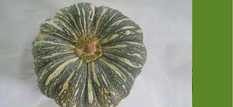
Healthy Tips
PUMPKIN- Calories: 26 The high amount of fiber, present in pumpkins is good for bowel health. The potassium in pumpkin is associated with lowering the risk of hypertension. Zinc in pumpkins boost the immune system and improves bone density. Pumpkins are very rich in carotenoids, which are known for keeping the immune system strong and healthy. The beta-carotene is a powerful antioxidant as well as an anti-inflammatory agent, helping to prevent build up of cholesterol on the arterial walls, thus reducing chance of stroke. Being rich in alpha-carotene, pumpkin is believed to slow the process of aging and also prevent cataract formation.
Source: www.naturalfoodbenefits.com
-
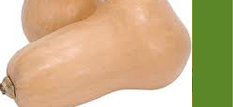
Healthy Tips
BUTTERNUT SQUASH- Calories from Fat 5, Total Fat 0g, Saturated Fat 0g, Sodium 0g, Total Carbohydrate 4g, Dietary Fiber 1g, Sugars 2g, Protein 1g Butternut squash contains many vital anti-oxidants and vitamins. It is rich in the B-complex group of vitamins like foliates, riboflavin, niacin, vitamin B-6 (pyridoxine), thiamin, and pantothenic acid. It is very low in calories; provides just 45 cal per 100 g. It contains no saturated fats or cholesterol; but is a rich source of dietary fiber and phyto-nutrients. Butternut squash contains high levels of vitamin A, a powerful natural antioxidant, and is required by the body for maintaining the integrity of vision, skin and mucus membranes. Source: www.nutrition-and-you.com/ www.fruitsandveggiesmatter.gov/
-

Healthy Tips
CASSAVAS- Calories: 120 Cassava roots are reasonably rich in calcium and vitamin C. They are high in starch (carbohydrates), making it a good energy source. Source: www.naturalfoodbenefits.com
-
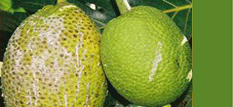
Healthy Tips
BREADFRUIT- Calories: 80 (boiled) 160 (Roasted) Breadfruit is relatively low in fat and calories, but higher in dietary fiber and iron than other starchy fruits, roots and tubers. Its main nutrient is starch and it is also an excellent source of potassium. Breadfruit contributes appreciable amounts of energy, and protein, carbohydrate and dietary fiber to the diet. Breadfruit also contains calcium, magnesium, phosphorus and potassium.
Source: www.CFNI.org
-
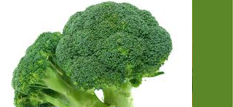
Healthy Tips
BROCCOLI- Calories: 25 Cholesterol 0mg, Sodium 30mg, Total Carbohydrate 6g, Dietary Fiber 3g, Sugars 1g, Protein 2g Broccoli is high in fiber, which enhances the gastrointestinal (GI) tract, and reduces blood cholesterol levels. It contains beta–carotene and omega–3 fatty acids, strong anti–carcinogens, and other nutrients like vitamin C, vitamin A, vitamin E, zinc, potassium and certain amino acids. These anti-cancer agents fight breast, stomach, uterine, prostate lung, colon, liver, kidney and intestinal cancers. The potassium in broccoli aids high blood pressure, while the calcium helps combat osteoporosis. Source: www.healthfood-guide.comwww.fruitsandveggiesmatter.gov/
-
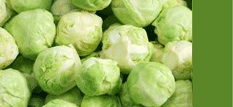
Healthy Tips
BRUSSEL SPROUTS- Calories: 30 Calories from Fat 5, Total Fat 0g, Sodium 15mg, Total Carbohydrate 6g, Dietary Fiber 2g, Sugars 1g, Protein 2g Brussel sprouts are high in Vitamin C, and are a good source of potassium. Four ounces of brussel sprouts contain about 100 mg of Vitamin C, uncooked. Brussel sprouts contain glucosinolates and antioxidants, which can help prevent the body from developing breast, colon and prostate cancers. Source: www.healthfood-guide.comwww.fruitsandveggiesmatter.gov/
-
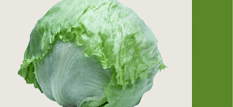
Healthy Tips
LETTUCE- Calories: 15 Lettuce is good for dieters because it is low in calories. Lettuce is a good source of chlorophyll, vitamin K, and iron, which is the most active element in the body. The magnesium content has exceptional vitalizing powers especially in the muscular tissues, the brain and the nerves. Lettuce may also help treat acid indigestion, anemia, arthritis, catarrh, circulatory problems, colitis, constipation, cough, diabetes, gastritis, gout, insomnia, irritable bowel, obesity, sexual addiction, stress, tuberculosis, ulcers and urinary tract diseases.
Source: www.healthfood-guide.com
-

Healthy Tips
SPINACH- Calories: 23 Spinach is high in vitamin C, well known for boosting the immune system and preventing clogged arteries, and vitamin A, which helps the respiratory system and helps prevent cholesterol from building in the blood vessels. It's an excellent source of folate and magnesium, both good for the heart. Spinach also contains lutein, a carotenoid that helps prevent macular degeneration and cataracts. In addition, 100g of spinach provide 402% of daily vitamin-K requirements. Vitamin K plays a vital role in strengthening bone mass by promoting osteotrophic (bone building) activity in the bone. It also limits neuronal damage in the brain in patients with Alzheimer's disease.
Source: www.healthfood-guide.com
www.nutrition-and-you.com/spinach.html
-
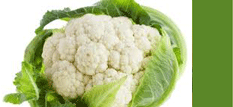
Healthy Tips
CAULIFLOWER- Calories: 15 Calories from Fat 5, Total Fat 0, Saturated Fat 0g, Cholesterol 0mg, Sodium 10mg, Total Carbohydrate 3g, Dietary Fiber 2g, Sugars 1g, Protein 1g. Cauliflower is high in vitamin C -one cup of cooked cauliflower gives you almost half of your recommended daily allowance of the vitamin. Several studies show that people eating cauliflower or other crucifers such as broccoli on a consistent basis, reduce their potential for developing lung, colon, bladder, ovarian and breast cancers.
Source: www.healthfood-guide.com
www.fruitsandveggiesmatter.gov/
-
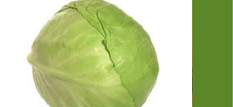
Healthy Tips
CABBAGE- Calories: 15 Calories from Fat 5, Total Fat 0g, Saturated Fat 0g, Cholesterol 0mg, Sodium 5mg, Total Carbohydrate 3g, Protein 1g Just like other members of the crucifer family, such as broccoli and cauliflower, cabbage is a preventative of cancer. Cabbage, is also a good source of vitamin C, a powerful antioxidant, which reduces free radicals in the body, strengthens the immune system, helps depression, aids in healing wounds and ulcers and has a beneficial effect on the immune system. There is some evidence that it might actually help Alzheimer's disease patients as well.
Source: www.healthfood-guide.com
-
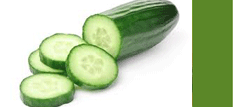
Healthy Tips
CUCUMBER- Calories: 15 Cucumber is saturated fat and cholesterol free, and one of the very low calorie vegetables; providing just 15 calories per 100 g. Cucumber peel is a good source of dietary fiber that helps reduce constipation, and offers some protection against colon cancers by eliminating toxic compounds from the stomach. It is a very good source of potassium, an important intracellular heart friendly electrolyte; and helps reduce blood pressure and heart rates by countering effects of sodium.
Cucumber contains unique antioxidants which play a role in aging and various disease processes, and the treatment of Alzheimer's disease patients by limiting neuronal damage in the brain.
Source: www.nutrition-and-you.com/cucumber.html
-

Healthy Tips
GINGER- Calories: 2 One of ginger's most touted health benefits is its effects on digestive ailments, including reducing gas. It can help digest fatty foods and break down proteins. It also is known to relieve nausea, and can be effective in treating morning sickness as well as motion sickness. Ginger can be used to treat inflammations such as arthritis or ulcerative colitis. Recent studies show that ginger might also have a role in lowering LDL cholesterol because the spice can help reduce the amount of cholesterol that is absorbed. It is effective in stimulating circulation of the blood , can help relax muscles around the blood vessels, and is said to help prevent blood clots from forming. Source: www.naturalfoodbenefits.com
-
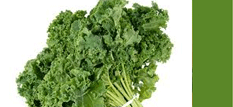
Healthy Tips
KALE- Calories: 50 Kale contains health-promoting phytochemicals, which are appear to protect against prostate and colon cancers. It is very rich in vitamin A, required for maintaining healthy mucus membranes, skin and is essential for vision. Kale offers protection against lung and oral cavity cancers, and is one of the excellent vegetable sources for vitamin K; 100 g provides about 700% of the recommended intake. It is also a rich source of minerals, including potassium that helps control heart rate and blood pressure by countering effects of sodium. Source: www.nutrition-and-you.com/kale.html
-
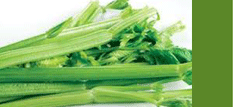
Healthy Tips
CELERY- Calories: 10 Besides being low in calories, celery also lowers blood pressure. Celery contains phtalides that relax the muscles that surround the arteries. This allows the arteries to dilate and the blood to flow easily, which lowers blood pressure and the LDL cholesterol, the bad cholesterol. The sodium and potassium content of celery juice help regulate the amount of bodily fluid and increase the production of urine, which makes it a powerful diuretic. It also aids the functioning of the kidneys- its diuretic action helps eliminate toxins from the body, helping to prevent kidney stones. Source: www.healthfood-guide.com/
-

Healthy Tips
CORN- Calories: 90 Health benefits of corn include controlling diabetes, prevention of heart ailments, lowering hypertension and prevention of neural-tube defects at birth.
Corn is a rich source of calories and forms a part of the staple diet among many populations. Corn contains 342 calories per 100grams, among the highest in cereals.
It also prevents haemorrhoids and colorectal cancer. The fiber content of one cup of corn amounts to 18.4% of the daily recommended amount. This aids in alleviating digestive problems such as constipation and haemorrhoids, as well as lowering the risk of colon cancer.
Source: http://www.naturalfoodbenefits.com/
-

Healthy Tips
YAM- Calories: 108 Yam is a good source of energy; 100g provide 118 calories. The complex carbohydrates and soluble dietary fiber, together raise blood sugar levels slower than simple sugars and therefore recommended as a low glycemic index healthy food. In addition, the dietary fiber helps reduce constipation, decrease bad or "LDL" cholesterol levels by binding to it in the intestines and preventing colon cancer risks. Yam is an excellent source of B complex group of vitamins, which mediate various metabolic functions in the body.
Source: www.CFNI.org
-
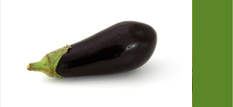
Healthy Tips
EGGPLANT- Calories: 15 Calories from Fat 0g, Total Fat 0g, Saturated Fat 0g, Sodium 0mg, Total Carbohydrate 4g, Dietary Fiber 1g, Sugars 2g, Protein 0g Eggplant is a fat free rich source of phenolic compounds, an antioxidant that can help prevent cancer, cholesterol build-up and bacterial and viral infection. Eggplant's high fiber content can prevent constipation, hemorrhoids, and colitis. The skin of eggplant contains a phytonutrient that helps protect the lipids (fats) in brain cell membranes. Eggplant can help stomach ulcers, and lowers cholesterol by preventing its absorption in the intestines. Eggplant contains a large amount of water, and is good for balancing diets that are heavy in protein and starches. Source: www.healthfood-guide.comwww.fruitsandveggiesmatter.gov/
-
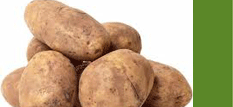
Healthy Tips
IRISH POTATO- Calories: 90 Potatoes are rich source of vitamin C, vitamin B6, copper, manganese, and dietary fiber. Potatoes are low in sodium, nearly fat free and easy to digest. They are beneficial in curing stomach ulcers and inflamed conditions of the colon. The potassium content, available in potatoes, helps in maintain fluid and electrolyte balance in the body cells. It also helps in normal functioning of heart and keeping a check on blood pressure. Source: http://www.naturalfoodbenefits.com/
-
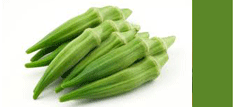
Healthy Tips
OKRA- Calories: 20 Besides being low in calories, okra is high in vitamin A, Thiamin, B6, C, folic acid, riboflavin, calcium, zinc and dietary fiber. The mucilage and fiber found in okra helps adjust blood sugar by regulating its absorption in the small intestine. It also helps reabsorb water and trap excess cholesterol, metabolic toxins and surplus bile in its mucilage and slips it out through the stool. Eating okra is recommended for pregnant women for it is rich in folic acid, which is essential in the neural tube formation of the fetus during 4-12 weeks of gestation period in the mother's womb. Source: http://www.naturalfoodbenefits.com/
|
 |
 Claxton and other 99 women were trained and pre-counseled before they benefited from free mammograms offered by Pink Lily. According to the Founder and Executive Director of Pink Lily, going through the Pink Lily BSP has an advantage because women receive psychological and emotional support. The charity also maintains proper data storage which can be useful to researchers, ministries of health and other relevant agencies.
Claxton and other 99 women were trained and pre-counseled before they benefited from free mammograms offered by Pink Lily. According to the Founder and Executive Director of Pink Lily, going through the Pink Lily BSP has an advantage because women receive psychological and emotional support. The charity also maintains proper data storage which can be useful to researchers, ministries of health and other relevant agencies.



















































